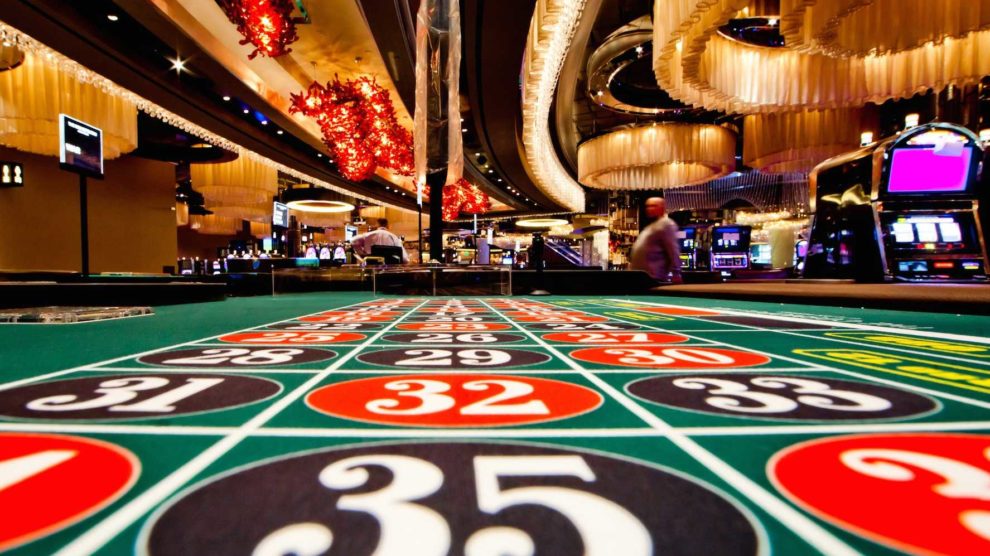
In the world of gambling, where chance and strategy meet, a unique tapestry of beliefs manifests—one that weaves together luck, fate, and the enigmatic nature of casino games. Casinos, bustling with excitement and anticipation, are not just places for placing bets; they are also arenas in which superstitions thrive. From the novice player to the seasoned gambler, these mysterious practices often shape how individuals approach the games they play, holding the belief that their actions can affect the outcome in ways that go beyond mere probability.
As players gather around roulette wheels, blackjack tables, and slot machines, the atmosphere is thick with stories of lucky charms, rituals, and codified behavior that defy logic yet provide a sense of comfort. Whether it’s wearing a specific outfit, following a particular sequence of bets, or even avoiding certain numbers, the attachment to various superstitions reflects a deep-rooted desire to control the uncontrollable. This article delves into the captivating world of casino game superstitions, investigating the beliefs that simultaneously entertain and mystify those who dare to play.
Historical Beginnings of Superstitions
Casino games have long been connected with an host of superstitions that can be traced to primitive civilizations. The beginnings of these ideas can be linked to humanity’s innate wish to manage the unpredictable outcomes related with luck and randomness. In early civilizations, games of chance were often tied to spiritual practices. Players would invoke aid or request favor from spirits, believing that their actions could influence the results in their benefit. This basis laid the groundwork for the myriad of superstitions that developed as gambling evolved over ages. https://78win.tv/
During the Middle Ages, betting became a widespread hobby across the continent, and with it, a rich tapestry of superstitions developed. Players adopted various rituals and charms, believing they could change the outcome of games. 78Win.tv The significance of numbers, in particular, emerged to manifest in superstitions pertaining to card games and dice. The number 7 was often considered lucky, while different numbers carried unfortunate connotations. These beliefs mirrored the cultural contexts of the time, evolving as they transferred through generations and changed to emerging gaming environments.
As gambling houses emerged in the 17th century, particularly in the Italian peninsula and the French nation, the atmosphere surrounding gambling became imbued in mystery. The growing openness of casino activities allowed for the expansion and variation of superstitions among players. Concepts like fortunate charms, specific seating positions, and rituals gained importance, creating a unique culture within betting houses. As these traditions continued to thrive, they became integral to the character of gambling games, illustrating how historical developments and culture shape the belief systems that influence how gamblers connect with fortune.
Widespread Casino Superstitions
Beliefs surrounding casino games are abundant and varied, mirroring the hopes and fears of players as they engage in random activities. One of the most prevalent beliefs is that certain numbers bring fortune or misfortune. For example, the digit seven is often seen as a lucky digit, frequently sought after by players looking for a favorable result. Conversely, the digit thirteen is routinely considered cursed, leading many gamblers to steer clear of it during their gaming periods.
Another frequent superstition relates to practices that players believe can influence their chances. It could be blowing on dice before a roll, using a particular gesture to place a bet, or even wearing specific items of clothing, many people feel that these actions can tilt luck in their favor. These rituals offer a sense of control in an otherwise unpredictable environment, reinforcing the idea that fortune can be created through individual beliefs and habits.
Finally, the environment and vibe of the casino itself adds to superstition. Many gamblers suggest that the presence of specific icons, such as four-leaf clovers or lucky coins, can enhance their chances of winning. Additionally, players might adhere to the belief that winning streaks can be interrupted by mundane occurrences, such as someone passing by or a accident at the gaming surface. The shared environment in a gambling house can amplify these beliefs, creating a communal culture of myths that transcends individual experiences.
Impact of Superstitions on Players
Beliefs play a significant role in the mindset of gamblers, often influencing their behavior and decision-making. A lot of gamblers think that fortune can be manipulated through different rituals, such as donning a talisman, selecting specific colors, or steering clear of particular digits. This dependence on superstitions can create a sense of control in an environment that is intrinsically unpredictable. Players frequently feel more self-assured and engaged when they believe that their actions could sway the outcome of a game in their favor.
The influence of these superstitions extends past individual players, affecting the overall atmosphere inside the casino. For example, a player who holds the belief in the luck of a particular slot machine might attract a gathering, as onlookers are fascinated by their apparent luck. This shared belief can amplify excitement and create a dynamic environment, leading to an interesting experience even for those who may not necessarily be superstitious. The excitement around certain games can lead to higher participation and extended playing sessions, supporting the casino’s vibrant social scene.
In some instances, superstitions can lead to negative effects for players. Depending too much on rituals can result in bad gambling decisions, as some may ignore basic strategies in favor of unfounded beliefs. Additionally, the stress to perform rituals may increase anxiety and stress levels, diminishing from the enjoyment of the experience. Ultimately, while superstitions can enhance the excitement of playing casino games, they can also lead to poor choices that overshadow the enjoyment and amusement intended in the casino experience.